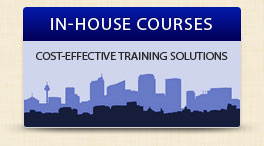 BS EN 62366 USABILITY ENGINEERING FOR MEDICAL DEVICES
BS EN 62366 USABILITY ENGINEERING FOR MEDICAL DEVICES
Overview
The key harmonised standard for medical device usability is BS EN 62366 , Medical devices – Application of usability engineering to medical devices. This standard applies to all types of medical devices, both electrical and nonelectrical and should be used conjunction with ISO/IEC 14971 Application of risk management to medical devices.
Delivered in-house, this interactive and practical course is designed to provide delegates with an understanding of usability engineering and how it should be applied to medical devices by examining all steps of the Usability Engineering Process.
The usability engineering process is specifically developed to reduce everyday errors, lessen risks and ensure general equipment safety. Human Factors and Usability Engineering in medical device design is also required by the FDA’s Quality System Regulation (QSR).
Directive 2007/47/EC, which came into effect in March 2010 and revised the Medical Device Directive, introduced much clearer and more specific usability requirements. Recital 18 of the directive stated “the need to consider ergonomic design and the training and knowledge of the user” in the essential requirements. Essential Requirement 1 of Annex I of the MDD was also revised, together with other requirements, to include these two additions.
Course Objectives
This usability engineering workshop will develop the skills necessary to apply the usability engineering methodology in BS EN 62366 from analysing and specifying the design, identifying potential risks and verifying and validating the user interface. Delegates will be able to extend the scope of their current risk management activities for medical devices to ensure the user interface is safe and effective.
This course compliments Excel’s other auditor courses applicable to the Medical Device industry.
Key Skills / Learning Objectives
Through the combination of interactive tutorials, case studies and actual company devices, our workshop will enable the delegates to:
- Apply the usability engineering process in BS EN 62366 to medical devices and to conduct usability analysis to identify hazards and possible use errors.
- Understand how to prepare the documents for the key stages of the usability engineering process:
- Application specification
- Primary operating functions
- Characteristics relating to safety
- Hazard identification
- Usability specification
- Usability validation plan
Course Outline
- Expectations of the FDA and the EU in applying usability analysis to medical devices.
- Applying the usability management standard BS EN 62366 to medical devices
- The relationship between ISO 14971 and the EU directive and the implications the changes represent
- Usability and use errors and examples of risks associated with user interfaces
- The stages of the Usability Engineering Process.
- The application of usability analysis methodologies, such as FMEA, to medical devices.
- Sources of information and further developmentThe principles of usability management planning in developing procedures and practices to analyse, evaluate and control usability
- Sources of information and further development
Who Should Attend?
- R&D Managers / Engineers
- RA / QA Managers / Engineers
- Management Representatives
- Members of multi-discipline Design Teams
- Members of Design Review Teams
- Ergonomic Designers
- Usability Engineers
- Product, Project, and Program Managers
- Internal Auditors
Booking and Course Fees
Fees include:
- Delegate workbook, including reference information
- Training provided by qualified and experienced tutors with extensive practical management auditing experience across a variety of manufacture and service industries
- Certificate verifying attendance and completion of course
This course is for delivery in-house only. Offering better value for money, in-house training can be customised and designed to meet specific individual and company needs.
Please Contact us to discuss your in-house requirements.
More Information
Request further information
In-House training
Associated courses
What our customers say











